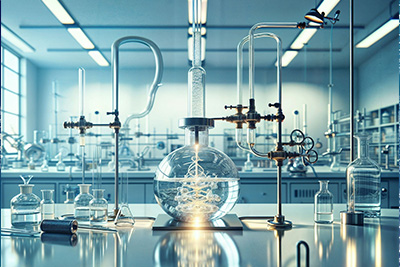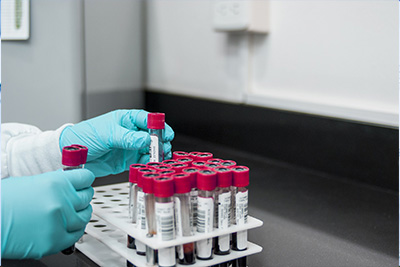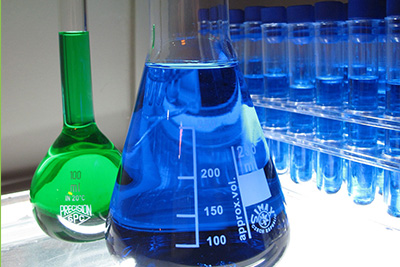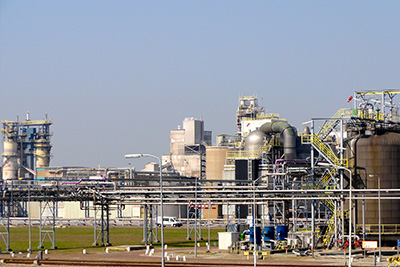-
![Technological Adva···]() 2024-12-02 Technological Advances in Reverse Es···
2024-12-02 Technological Advances in Reverse Es···Recent advancements in reverse ester tin manufacturing technology have significantly improved the efficiency and sustainability of industrial processes. Innovations such as catalytic improvements and optimized reaction conditions have led to higher yields and reduced by-products. These enhancements not only decrease production costs but also minimize environmental impact, making the process more eco-friendly. Additionally, new analytical techniques enable better quality control, ensuring consistent product performance. Overall, these technological strides are paving the way for more efficient and greener industrial manufacturing practices.
read more > -
![Best Practices in ···]() 2024-12-02 Best Practices in Sourcing High-Puri···
2024-12-02 Best Practices in Sourcing High-Puri···Sourcing high-purity tin is critical for the efficient production of reverse esters. This process demands stringent quality standards to ensure optimal reaction outcomes. Key practices include selecting reputable suppliers with certified purity levels, conducting regular supplier audits, and implementing rigorous testing protocols. Additionally, maintaining proper storage conditions and monitoring trace contaminants are essential to prevent degradation. Collaborating closely with suppliers and utilizing advanced analytical techniques can further enhance the reliability and consistency of tin materials used in reverse ester production.
read more > -
![Innovations in Tin···]() 2024-12-02 Innovations in Tin Catalyst Applicat···
2024-12-02 Innovations in Tin Catalyst Applicat···Recent advancements in tin catalyst applications have significantly improved the efficiency of esterification reactions. These innovations include the development of new, more selective catalysts that minimize side reactions and enhance product purity. Additionally, researchers have explored the use of nanostructured tin catalysts, which offer greater surface area and reactivity. These developments not only accelerate the reaction rates but also reduce the amount of catalyst required, leading to more cost-effective and environmentally friendly processes. The enhanced catalytic systems show promise in various industrial applications, from pharmaceuticals to biofuel production.
read more > -
![Reverse Ester Tin ···]() 2024-12-02 Reverse Ester Tin Production: A Comp···
2024-12-02 Reverse Ester Tin Production: A Comp···This guide explores the methodologies and technologies involved in the production of reverse ester tin, providing a comprehensive overview. It covers various processing techniques, from catalytic reactions to purification methods, emphasizing efficiency and yield optimization. The document also discusses key challenges and potential solutions in the production process, aiming to assist both researchers and industry professionals in enhancing product quality and reducing environmental impact.
read more > -
![Raw Material Sourc···]() 2024-12-02 Raw Material Sourcing for Reverse Es···
2024-12-02 Raw Material Sourcing for Reverse Es···The sourcing of raw materials for reverse ester tin involves identifying key suppliers and understanding global trends. Major suppliers include companies like PPG Industries, AkzoNobel, and Sherwin-Williams, which provide essential components such as tin salts and organic acids. Global trends indicate a shift towards sustainable sourcing practices and increased demand from the coatings and pharmaceutical industries. This shift is driving innovation in material extraction and processing techniques to meet environmental standards and enhance product quality.
read more > -
![Methyltin Compound···]() 2024-12-02 Methyltin Compound Production: Futur···
2024-12-02 Methyltin Compound Production: Futur···The production of methyltin compounds is poised to play a pivotal role in the future of the polymer industry. These compounds, known for their exceptional catalytic properties, are expected to enhance the efficiency and performance of various polymerization processes. As the demand for high-performance polymers increases, methyltin catalysts offer a promising solution due to their ability to improve molecular weight distribution, reaction rates, and overall product quality. The industry's shift towards sustainable practices also positions methyltin compounds favorably, as they can be produced using environmentally friendly methods. This development heralds a new era in polymer manufacturing, with significant implications for material science and industrial applications.
read more > -
![The Impact of Octy···]() 2024-12-02 The Impact of Octyltin Production on···
2024-12-02 The Impact of Octyltin Production on···The production of octyltin compounds significantly influences the processing and quality of Polyvinyl Chloride (PVC) products. These additives enhance the thermal stability, mechanical properties, and UV resistance of PVC materials. However, their use also poses challenges such as increased production costs and potential environmental concerns. The incorporation of octyltin stabilizers improves加工和产品质量,但同时也带来了增加的生产成本和潜在的环境问题。添加辛基锡稳定剂提高了PVC材料的热稳定性、机械性能和紫外线抵抗力。其使用也带来了增加的生产成本和潜在的环境问题。,,Summary in English:,The production of octyltin compounds impacts the processing and quality of PVC materials by enhancing thermal stability, mechanical properties, and UV resistance. Despite these benefits, increased production costs and environmental concerns pose significant challenges. Thus, while octyltin stabilizers improve PVC performance, their use must be balanced against economic and ecological considerations.
read more > -
![Dimethyltin as a H···]() 2024-12-02 Dimethyltin as a Heat Stabilizer: Pr···
2024-12-02 Dimethyltin as a Heat Stabilizer: Pr···Dimethyltin compounds have emerged as significant heat stabilizers in the plastics industry, enhancing thermal stability during processing. Recent innovations in production techniques have improved efficiency and reduced costs, making dimethyltin more accessible. These advancements underscore its growing relevance in manufacturing processes, particularly in PVC applications where thermal degradation is a critical concern. The increased use of dimethyltin not only boosts product quality but also supports sustainable manufacturing practices by extending the lifespan of plastic materials.
read more > -
![Exploring Mercapti···]() 2024-12-01 Exploring Mercaptide Tin Technology ···
2024-12-01 Exploring Mercaptide Tin Technology ···The article delves into the application of mercaptide tin technology for enhancing the quality of PVC compounds. This technology is highlighted for its effectiveness in improving the thermal stability, processability, and overall performance of PVC materials. The use of mercaptide tin stabilizers offers a significant advantage in achieving high-quality PVC products, making it a promising approach in the manufacturing sector. The research underscores the importance of these stabilizers in maintaining the mechanical properties and clarity of PVC throughout processing and end-use.
read more >









